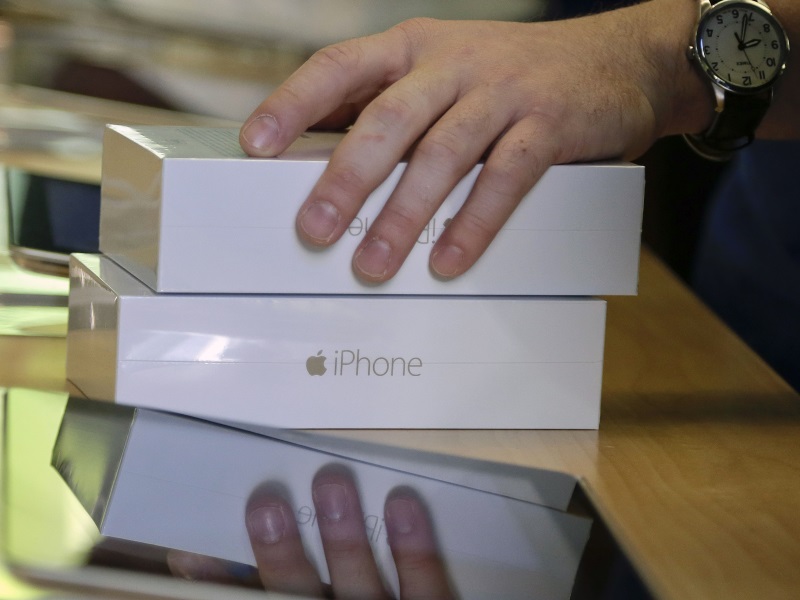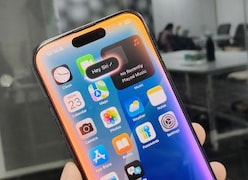- Home
- Mobiles
- Mobiles News
- Apple Being Asked for Access to Just One iPhone, Says White House
Apple Being Asked for Access to Just One iPhone, Says White House

In a briefing with reporters, White House spokesman Josh Earnest deferred to the Justice Department but said it's important to recognise that the government is not asking Apple to redesign its product or "create a new backdoor to its products."
Earnest said the case was instead about federal investigators learning "as much as they can about this one case."
"The president certainly believes that is an important national priority," he said.
The Department of Justice stressed in a statement on Wednesday that its request was "narrowly tailored," and chided Apple. "It is unfortunate that Apple continues to refuse to assist the department in obtaining access to the phone of one of the terrorists involved in a major terror attack on US soil."
Most technology security experts, including many who have served in government, have said technical efforts to provide government access to encrypted devices inevitably degrades security for everyone. It is an argument that has been made since the 1990s, when the government tried and failed to force tech companies to incorporate a special chip into their products for surveillance purposes.
"The government suggests this tool could only be used once, on one phone," Cook said in a statement on Tuesday. "But that's simply not true. Once created, the technique could be used over and over again, on any number of devices."
Google Chief Executive Sundar Pichai endorsed Cook's stance in tweets on Wednesday.
"We build secure products to keep your information safe and we give law enforcement access to data based on valid legal orders," he wrote. "But that's wholly different than requiring companies to enable hacking of customer devices & data. Could be a troubling precedent."
© Thomson Reuters 2016
Get your daily dose of tech news, reviews, and insights, in under 80 characters on Gadgets 360 Turbo. Connect with fellow tech lovers on our Forum. Follow us on X, Facebook, WhatsApp, Threads and Google News for instant updates. Catch all the action on our YouTube channel.
Related Stories
- Samsung Galaxy Unpacked 2025
- ChatGPT
- Redmi Note 14 Pro+
- iPhone 16
- Apple Vision Pro
- Oneplus 12
- OnePlus Nord CE 3 Lite 5G
- iPhone 13
- Xiaomi 14 Pro
- Oppo Find N3
- Tecno Spark Go (2023)
- Realme V30
- Best Phones Under 25000
- Samsung Galaxy S24 Series
- Cryptocurrency
- iQoo 12
- Samsung Galaxy S24 Ultra
- Giottus
- Samsung Galaxy Z Flip 5
- Apple 'Scary Fast'
- Housefull 5
- GoPro Hero 12 Black Review
- Invincible Season 2
- JioGlass
- HD Ready TV
- Laptop Under 50000
- Smartwatch Under 10000
- Latest Mobile Phones
- Compare Phones
- OPPO A6v 5G
- OPPO A6i+ 5G
- Realme 16 5G
- Redmi Turbo 5
- Redmi Turbo 5 Max
- Moto G77
- Moto G67
- Realme P4 Power 5G
- HP HyperX Omen 15
- Acer Chromebook 311 (2026)
- Lenovo Idea Tab Plus
- Realme Pad 3
- HMD Watch P1
- HMD Watch X1
- Haier H5E Series
- Acerpure Nitro Z Series 100-inch QLED TV
- Asus ROG Ally
- Nintendo Switch Lite
- Haier 1.6 Ton 5 Star Inverter Split AC (HSU19G-MZAID5BN-INV)
- Haier 1.6 Ton 5 Star Inverter Split AC (HSU19G-MZAIM5BN-INV)

















